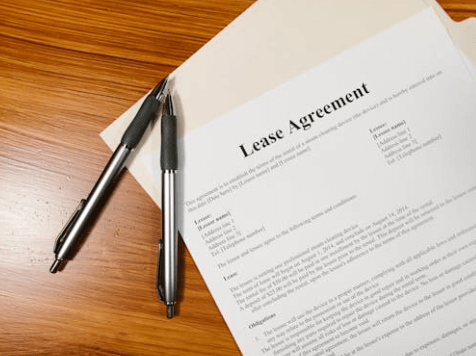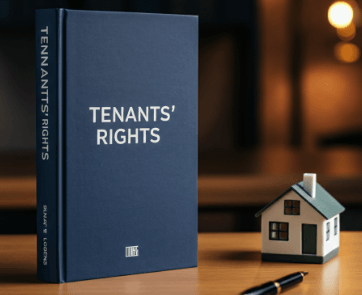Navigating the intricacies of rental agreements can be quite daunting, particularly in the face of property ownership transitions. In this blog, we will explore tenants’ rights when landlord sells property in Cape Coral, Florida. We will delve into the legal provisions safeguarding tenants and provide insights into what to expect when your landlord chooses to sell the property, ensuring you are well-informed about your rights as a tenant in Cape Coral. Join us as we uncover the core aspects of tenants’ rights when landlord sells property in Cape Coral.
Steve Daria and Joleigh, experienced real estate investors in Cape Coral, understand the importance of clear communication with tenants during the selling process. They emphasize that informing tenants about the property’s sale and any potential changes in leasing agreements fosters trust and transparency. By respecting tenants’ rights, Steve and Joleigh not only protect their investment but also promote a positive rental experience for all parties involved.
Navigating Tenants’ Rights in Cape Coral, Florida
In Cape Coral, tenants are protected by specific rights when their rental property is sold.
Here’s an overview of what tenants need to know:
Lease Agreements and Their Importance
A lease agreement is a lawful binding contract between the tenant and the landlord.
It shows the terms and conditions of the rental deal, including the duration of the lease. Importantly:
- Duration of Stay: If you have a lease, you have the legal right to stay in the property until the lease ends, even if the property is sold.

Legal Protections for Tenants
Florida’s landlord-tenant laws provide several protections for tenants, including:
- Right to Peaceful Enjoyment: Tenants have the right to live in the property without undue disturbance, even if the landlord decides to sell.
- Privacy Rights: Tenants must be notified of any property showings or inspections with adequate notice, typically 24 hours.
Lease Agreements and Their Impact
The lease agreement plays a crucial role during a property sale.
Here’s how it affects the process:
Existing Lease Agreements
When a property is sold, the new owner inherits the lease and must adhere to its terms.
This means the new landlord must honor the remaining term of the lease, including the rent amount and other conditions.
- Disclosure: Transparent communication helps buyers understand that they may need to honor the current lease, which could impact their decision to purchase.
Get An Offer Today, Sell In A Matter Of Days…
Notice Requirements for Sale
Landlords are needed to provide tenants with appropriate notice regarding the sale of the property and any related changes. Here’s what to expect:
Notice Period
Landlords should provide tenants with a notice period of 30 to 60 days before the sale.
This gives tenants sufficient time to prepare for any changes or make alternative arrangements if necessary.
Showings and Tenant Privacy
Selling a property typically involves showings to potential buyers.
However, tenant privacy must be respected. Here’s how:
Scheduling Showings
Landlords must give tenants advance notice of showings and coordinate them at convenient times.
This balance is essential for maintaining a good relationship with tenants and ensuring their privacy.
Respecting Privacy
Tenants have the control to privacy during showings.
Landlords must ensure that showings are conducted respectfully and do not intrude on the tenant’s living space.
Security Deposits and Their Handling
Handling security deposits properly during a property sale is crucial for both tenants and new owners:
Transfer of Responsibility
When a property is sold, the responsibility for the security deposit typically transfers to the new owner.
The new landlord assumes obligations for returning the deposit when the tenant moves out.
Documentation and Disputes
Prior to vacating the premises, tenants are advised to meticulously record the property’s condition to safeguard their deposit.
This paper can be used to resolve any disputes over the deposit.
What Happens After a Property Sale?
Once the property is sold, tenants should be aware of the following changes:
Lease Continuation
The sale of the property does not automatically terminate the lease.
The new owner must acknowledge the existing lease terms unless both parties agree to modifications.
Communication with the New Owner
Tenants should establish communication with the new owner to address maintenance requests, rent payments, and any other concerns.
This helps ensure that issues are addressed promptly.

Strategies for Tenants During Property Sales
Here are some proactive steps tenants can take during the property sale process:
- Review Your Lease: Be aware of the terms of your lease agreement, including any clauses related to property sales or lease termination.
- Document Everything: Keep records of all dealings with the landlord and new owner, as well as any notices related to the sale. This documentation can be important in resolving disputes.
- Consult with a Legal Professional: If you have any concerns about your rights or the sales process, it’s wise to consult with legal counsel to protect your interests effectively.
- Be Cooperative: While protecting your privacy, be cooperative with the landlord to facilitate property showings. This can help keep a positive relationship and smooth the transition.
Communication Tips for Landlords
Effective communication is key for landlords during a property sale. Here’s how to manage the process smoothly:
- Provide Clear Notices: Ensure tenants receive timely and clear notices about the property sale and any associated changes. This helps tenants prepare for the transition and reduces misunderstandings.
- Respect Privacy: Schedule showings at times that are convenient for tenants and respect their privacy during these visits.
- Transfer Information: Clearly outline the terms of the lease and the status of security deposits to the new owner. This guarantees continuity and reduces the risk of disputes.
Frequently Asked Questions
Here are some common questions and answers regarding tenants’ rights when landlord sells property in Cape Coral:
Can My Lease Be Terminated if the Property Is Sold?
Generally, no. The sale of a house does not automatically terminate an existing lease.
The new owner must acknowledge the lease terms until it expires. However, the new owner can renegotiate lease terms if both parties agree.
If the lease includes a clause for early termination upon sale, this must be adhered to.
What Should I Do If the New Owner Wants to Change the Lease Terms?
Engage in discussions with the new owner to understand their proposed changes.
Negotiate terms that are practical to both parties and document any agreed-upon modifications in writing.
Both parties should sign any amendments to make them legally binding. If negotiations are unsuccessful, consider seeking legal advice or mediation.
What Happens to My Security Deposit?
The responsibility for the security deposit typically transfers to the new owner.
Ensure that the deposit details are accurately documented and communicated during the sale process.
Request confirmation from the new owner regarding the deposit’s transfer and address any disputes directly with them or seek legal advice if necessary.
Conclusion
Understanding tenants’ rights when landlord sells property in Cape Coral, Florida is essential for both tenants and landlords. By familiarizing themselves with state laws and lease agreements, tenants can protect their rights and ensure a smooth transition during the sale process.
Landlords should prioritize clear communication and respect for tenant privacy to facilitate a successful sale. With careful attention to these aspects, both parties can navigate the sale process effectively and maintain a positive experience.
**NOTICE: Please note that the content presented in this post is intended solely for informational and educational purposes. It should not be construed as legal or financial advice or relied upon as a replacement for consultation with a qualified attorney or CPA. For specific guidance on legal or financial matters, readers are encouraged to seek professional assistance from an attorney, CPA, or other appropriate professional regarding the subject matter.

